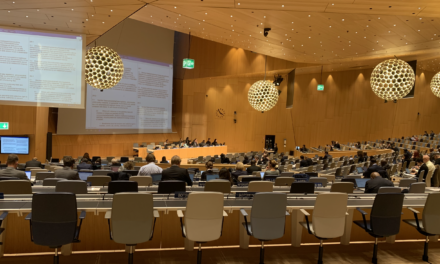Teresa Nobre
Communia Association
Link (CC-0)
The European Union is coming closer to approving a mandatory educational exception that may address some of the limitations copyright law places on everyday educational activities. However, the current proposal for a Directive on Copyright in the Digital Single Market would allow licences that are easily available in the market to take precedence over the educational exception.
Our new report “Educational Licences in Europe“, covering the analysis of 10 agreements in Finland, France, and the United Kingdom, shows that educational licences contain terms and conditions disadvantageous to schools:
Licences restrict the scope of protection of the educational exceptions
The agreements foresee various types of conditions to the permitted uses (e.g. technological limitations), which are not imposed by the educational exceptions. Some of the restrictions are introduced by contractual definitions of certain concepts of the law, such as what the terms “commercial” and “illustration for teaching” purposes mean.
Licences grant questionable rights to right holders
All of the agreements grant the right to check compliance with the licence to right holders. They may inspect materials, secured networks and storage platforms, and even enter the schools’ premises at any time, provided they give reasonable notice to schools. Only one agreementprevents right holders from disclosing sensitive information obtained in those inspections, such as data related with the performance of students. None of these agreements prohibits commercial uses of such data.
Licences impose burdensome obligations on schools
The British licences force schools to police teachers, students, and in some cases even third parties, on behalf of right holders, to ensure that an act of infringement ceases, and to prevent any recurrence thereof.
Solutions
The current proposal gives right holders the unilateral power to reshape the terms and conditions of educational uses. Our research shows that this will result in agreements that will act to the detriment of educational institutions. To avoid spreading these disadvantages across Europe, lawmakers should consider adopting the following measures:
- Prevent license priority, or provide only for limited priority to those contractual arrangements that are already in place. A legal framework that protects a minimum set of educational uses will stimulate contractual innovation, and eventually lead to licensing offers that are attractive to schools because they cover uses not allowed by law (e.g. uses on the open internet).
- Render contractual provisions that restrict the scope of protection afforded by a copyright exception or limitation unenforceable. A school will only be free to refuse a licence containing terms and conditions that are narrower or more restrictive than those offered by the law, if the educational exception is protected from contractual restrictions.
- Give schools access to affordable mediation and litigation, to challenge with ease the terms of a licence that are thought to be unfair or unreasonable. Lawmakers should put mechanisms in place to ensure that schools can force right holders to eliminate or replace unfair or unreasonable terms contained in the educational licences.
- Assess the need to submit educational licences to public regulation. If the agreements are constantly challenged or if they invariably contain terms and conditions that are unreasonable or unfair, lawmakers may need to intervene.
- Download the full report Educational Licences in Europe, by Teresa Nobre
- Download the Handout Educational Licences in Europe





